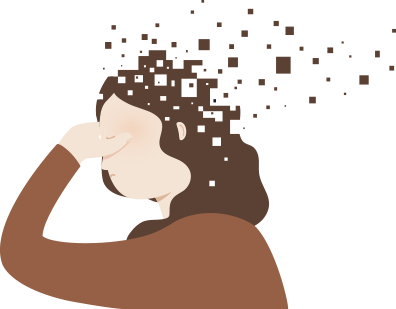Our Faqs

Frequently Asked Questions
Having lot of questions in mind is obvious. It shows how curious you are in particular things.
Do You Still
Have Questions?
Call Anytime
+91 8928790704
Is THESAMANWAY Therapy Right for You?
Yes, if you seek personalized, holistic therapy in a supportive environment, THESAMANWAY might be your ideal choice. Explore our services and reach out for a consultation to see if our approach aligns with your goals.
What are the Different Types of Psychotherapy?
1. Cognitive-Behavioral Therapy (CBT):
Focuses on identifying and changing negative thought
patterns and behaviors.
2. Psychodynamic Therapy: Explores
unconscious thoughts and past experiences to
understand and resolve current issues.
3. Humanistic Therapy: Emphasizes
personal growth, self-actualization, and the
importance of the present moment.
4. Interpersonal Therapy (IPT):
Concentrates on improving communication and
relationships to alleviate emotional distress.
5. Dialectical Behavior Therapy (DBT):
Combines cognitive-behavioral techniques with
mindfulness, particularly helpful for emotional
regulation.
6. Mindfulness-Based Cognitive Therapy (MBCT): Integrates mindfulness practices with CBT to prevent
relapse in individuals with recurrent depression.
7. Family Therapy: Involves working
with families to improve communication and resolve
conflicts.
8. Gestalt Therapy: Focuses on the
present experience and the integration of thoughts,
feelings, and behaviors.
9. Existential Therapy: Explores
individual existence, meaning, and the freedom to make
choices.
10. Narrative Therapy: Examines the
stories individuals tell about themselves to reshape
and empower their narratives.
These are just a few examples, and therapists may use
an integrative approach tailored to an individual's
needs. It's essential to discuss your preferences and
goals with your therapist to determine the most
suitable type of psychotherapy for you.
What is a Psychological Evaluation?
A psychological evaluation is a thorough assessment conducted by a licensed psychologist to understand an individual's mental and emotional well-being. It involves standardized tests, interviews, and observations to gather information about cognitive abilities, emotional health, and potential mental health conditions. The results guide personalized treatment plans, educational or vocational decisions, and, in some cases, legal considerations. The process is confidential, aiming to provide valuable insights for the individual's overall well-being.
How Often do you have Difficulty Sustaining your Attention?
If you find it challenging to sustain attention, assessing the frequency and triggers is crucial. Understanding patterns, potential distractions, or stressors can aid in addressing attention-related difficulties effectively. If concerns persist, consulting a healthcare or mental health professional for personalized guidance is recommended.
How Often are you Easily Distracted by External Stimuli?
Assessing how frequently external stimuli distract you provides insights into attention management. Identifying patterns and potential triggers helps tailor strategies for minimizing distractions. If persistent, consulting with a healthcare or mental health professional can offer personalized guidance for improved focus.
Were Several of the Symptoms Present Prior to Age 12?
Assessing whether symptoms were present before age 12 helps determine the onset and potential developmental aspects of a condition. It provides valuable information for understanding the course of symptoms and aids in accurate diagnosis and appropriate intervention strategies. If you have concerns, consulting a healthcare or mental health professional can provide further insights and guidance.
In a Mental Health Crisis?
If you are in a mental health crisis, it's crucial to seek immediate support. Reach out to a mental health professional, contact a crisis hotline, or go to the nearest emergency room. You don't have to face it alone—help is available.
